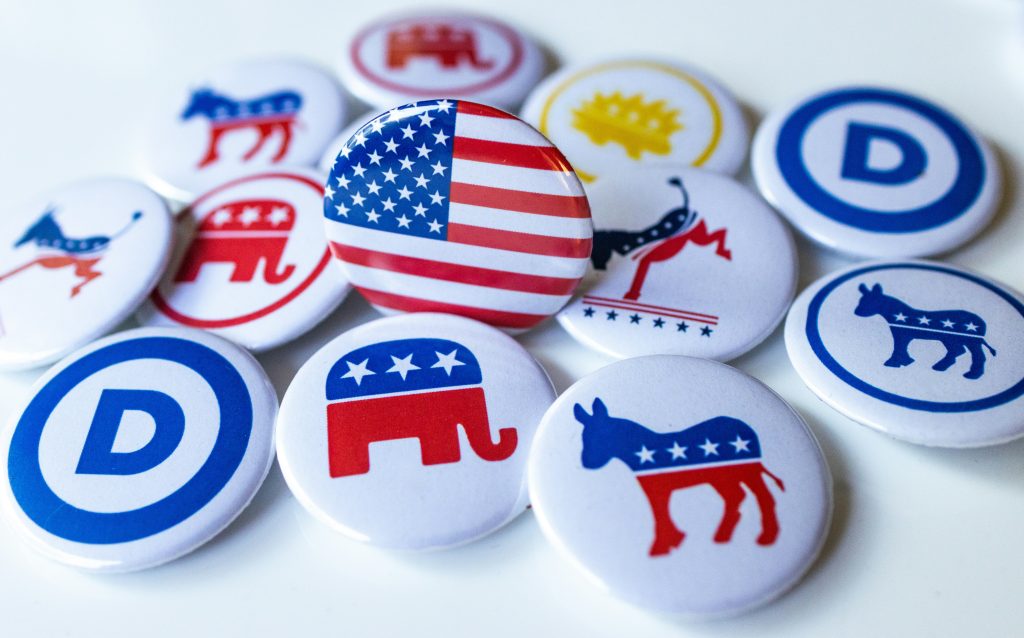Kamala Harris Faces Tough Questions in Pivotal Fox News Interview
In a high-stakes interview that could shape the electoral landscape, Vice President Kamala Harris faced off against Fox News’ Bret Baier, a figure known for his rigorous interviewing style. The interview comes as Harris intensifies her efforts to connect with undecided voters ahead of the upcoming election, a critical moment for her campaign.
Set against the backdrop of a polarized political environment, Harris’s appearance on a network that many Democrats regard as hostile territory was a strategic move designed to reach audiences that have been traditionally difficult for her party to engage. This interview marks a significant departure from the usual media interactions that Democratic leaders pursue, as Harris took on the challenge of addressing tough questions head-on, especially those revolving around former President Donald Trump and his policies.
Throughout the interview, Baier pressed Harris on various issues, often referencing Trump’s talking points which have resonated with a segment of the electorate. The tone of the interaction was a mix of cordiality and tension, with Baier’s aggressive questioning style leading to moments of contention. Harris, however, maintained her composure, offering responses aimed at clarifying her positions while attempting to appeal to moderate voters.
Political analysts note that such interviews are crucial in the lead-up to elections, as they provide candidates with a platform to articulate their policies and counter prevailing narratives. Harris’s strategy appears to leverage this opportunity to showcase her leadership qualities and to position herself as a viable alternative to her political opponents.
As the election approaches, the importance of reaching undecided voters cannot be overstated. Harris’s decision to engage with Baier on Fox News is seen as a calculated risk that could either bolster her support among moderate Republicans and independents or further alienate her base if perceived as too conciliatory. The reaction to the interview will likely be scrutinized closely by both supporters and critics alike.
In a climate where every interaction is amplified, the implications of such a high-profile interview extend beyond mere viewer ratings. It sets the stage for how the Democratic campaign will navigate interactions with traditionally conservative media outlets and engage voters who feel disconnected from mainstream political discourse.
As the dust settles from the interview, it remains to be seen how Harris’s performance will impact her campaign. Will it galvanize support among undecided voters, or will it further entrench partisan divides? Only time will tell, but one thing is clear: Harris’s foray into the Fox News arena represents a bold move in her campaign strategy, one that is emblematic of the challenges and opportunities facing contemporary political leaders.
Tags: Bret Baier, Bret Baier Kamala interview time, Election 2024, Fox News, Kamala Harris, Kamala Harris Fox News Interview, voter engagement
2024 Vice Presidential Debate: A Glimpse into the Future of American Politics
In a political climate characterized by heightened tensions and fervent debates, the 2024 Vice Presidential Debate emerged as a significant event, showcasing contrasting visions for the future of America. The debate, held recently, featured spirited exchanges between the candidates, drawing attention from across the nation. While the audience was substantial, it fell short of the viewership numbers from previous election cycles, prompting questions about the evolving nature of political engagement in a digital age.
The evening culminated in a pivotal moment that resonated with viewers—an intense discussion surrounding economic policies, immigration reform, and reproductive rights. Candidates JD Vance and Tim Walz launched pointed critiques at the current administration’s strategies, particularly targeting Vice President Kamala Harris and former President Donald Trump’s policy proposals. This exchange not only highlighted the candidates’ differing approaches but also underscored the stakes of the upcoming election.
Political analysts noted that while vice presidential debates traditionally play a secondary role in influencing electoral outcomes, this year’s debate offered critical insights into the candidates’ positions and the overall political landscape. As the nation grapples with pressing issues, the candidates’ responses and proposals may sway undecided voters and galvanize their respective bases.
The debate also sparked discussions about the potential impact of vice presidential candidates on the broader election narrative. Historically, these debates have served as a platform for candidates to showcase their readiness to assume higher office, yet there remains skepticism about their ultimate influence on the election. Some political observers contend that while vice presidential candidates may not fundamentally alter the course of an election, they can nonetheless provide a window into the priorities and philosophies of the main party candidates.
As the election season heats up, the debates are sure to play a crucial role in shaping public perception and voter sentiment. The contrasting styles and strategies displayed by Vance and Walz reflected the larger ideological divisions within the electorate, revealing a nation at a crossroads.
Looking ahead, the importance of engaging voters through dynamic and informative debates cannot be overstated. As the candidates prepare for future face-offs, they must navigate a landscape increasingly defined by social media and rapid information dissemination. The 2024 Vice Presidential Debate served as a reminder that while the medium may change, the core of political discourse remains deeply rooted in the candidates’ ability to connect with the electorate and articulate their visions for the future.
As we analyze the implications of this debate, it is evident that the outcomes will resonate beyond the immediate election cycle. The conversations initiated during these debates are likely to shape political discourse for years to come, influencing the strategies of future candidates and the expectations of voters. As the nation moves closer to the polls, the discourse surrounding economic stability, social justice, and governance will undoubtedly intensify, making it imperative for candidates to remain engaged and responsive to the needs of their constituents.
Tags: 2024 election, Economic Policies, Political Discourse, Vice Presidential Debate, voter engagement, VP debate
Missouri Election Results: A Turning Point in Local Politics
The recent election results in Missouri have ushered in a significant shift in the political landscape of the state. Voters across various districts have made their voices heard, signaling a possible change in priorities and governance. The turnout was notably high, reflecting a growing engagement among citizens in the political process. Key issues that dominated the campaign included education reform, healthcare access, and economic development. Candidates emphasized their commitment to addressing these concerns, resonating with a populace that is increasingly demanding accountability and transparency from their elected officials. As the new officials prepare to take office, the implications of these results will be felt not just within Missouri, but potentially as a bellwether for upcoming elections across the nation. Political analysts are closely watching the newly elected representatives, who campaigned on platforms promising to challenge the status quo and bring fresh perspectives to long-standing issues. The dynamics of local governance are expected to evolve, with a focus on collaboration and community engagement. The election results have sparked discussions about the future of party affiliations in the state, with some voters expressing a desire for more independent candidates who can bridge the divide between traditional party lines. As Missouri moves forward, the outcomes of this election could serve as a template for other states grappling with similar challenges. The pathway ahead is fraught with both opportunity and uncertainty, but one thing is clear: the electorate is eager for change and ready to hold their leaders accountable for the promises made during the campaign. As the dust settles on this election, all eyes will be on Missouri to see how these new leaders will navigate the complex issues facing their communities and whether they will fulfill the aspirations of the voters who put them in office.
Tags: election results, local governance, Missouri election results, Missouri politics, voter engagement



